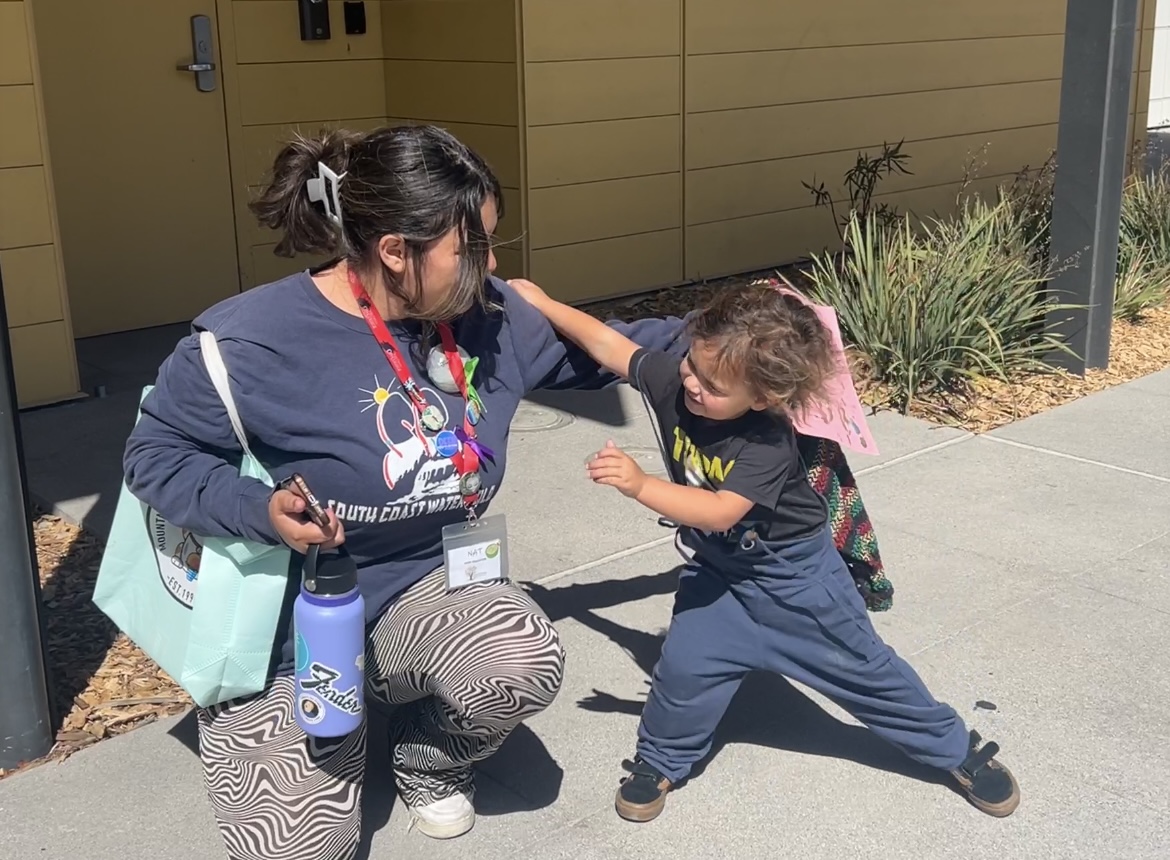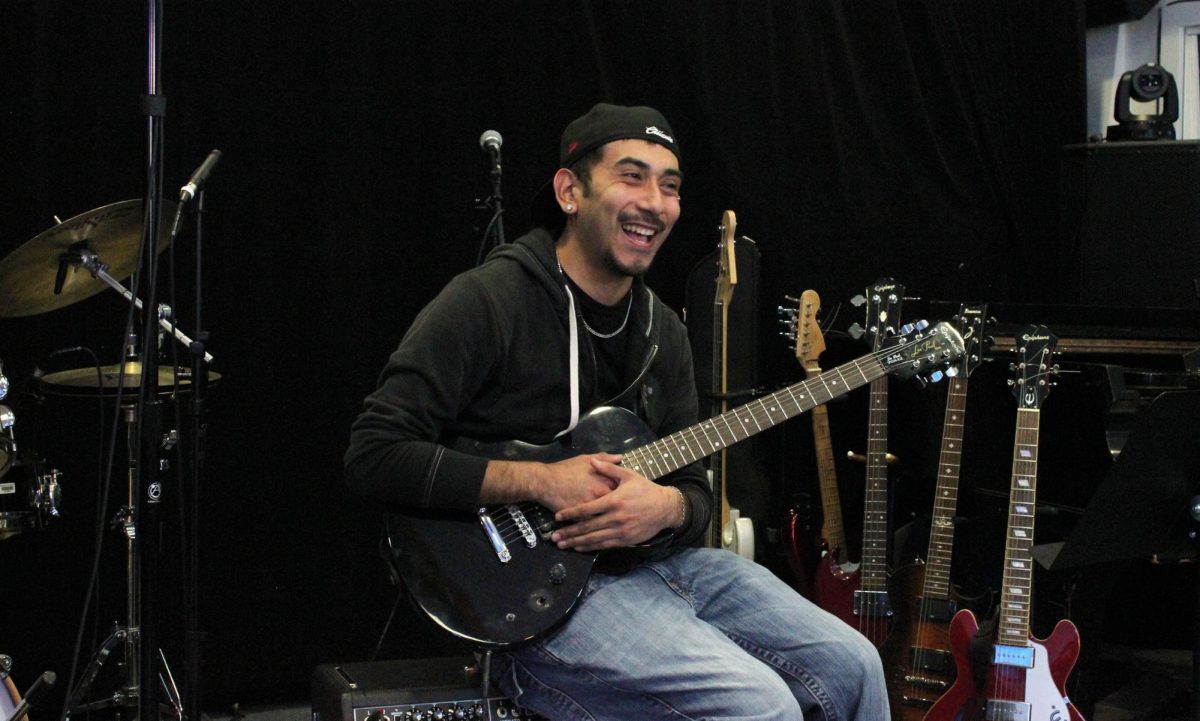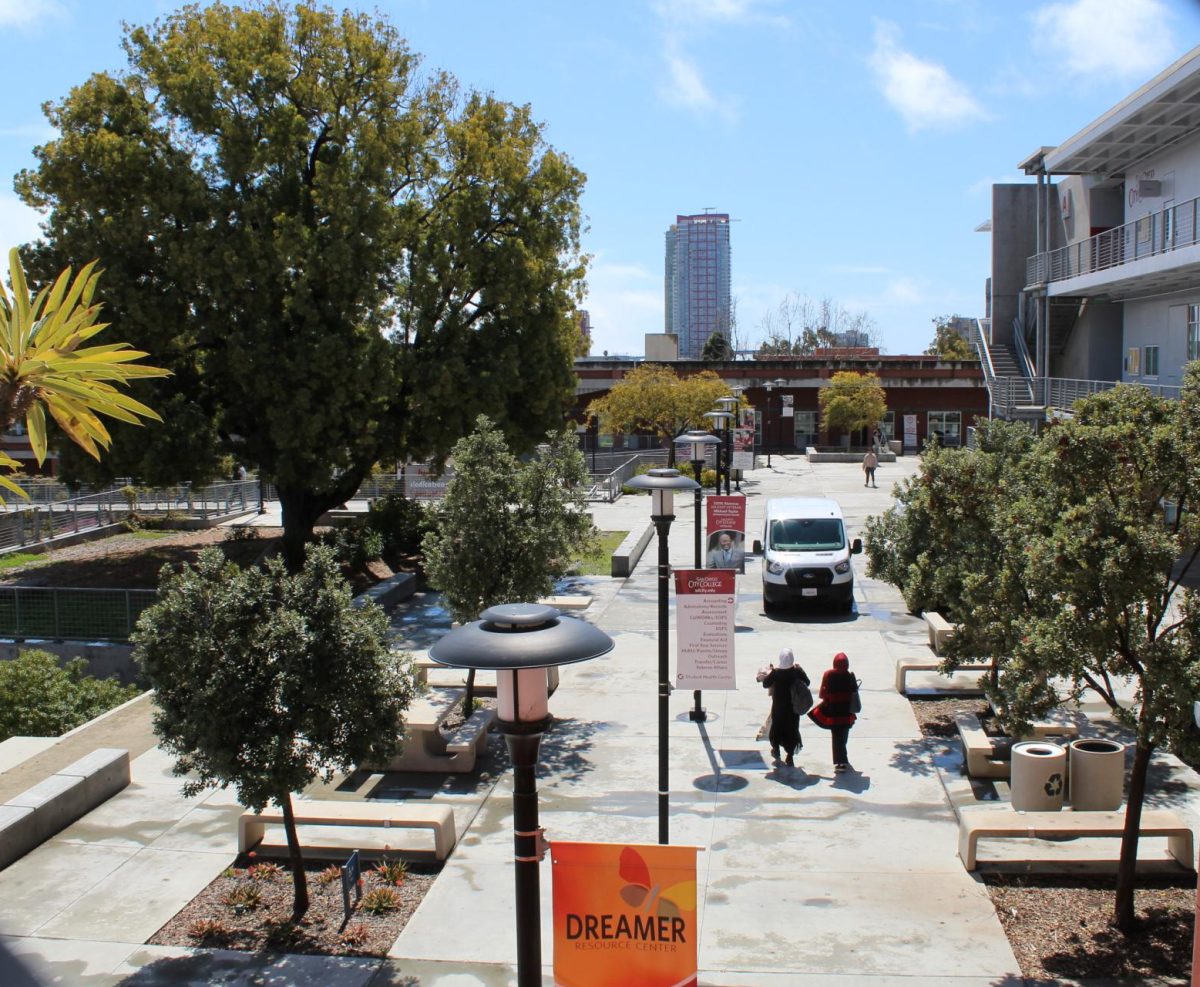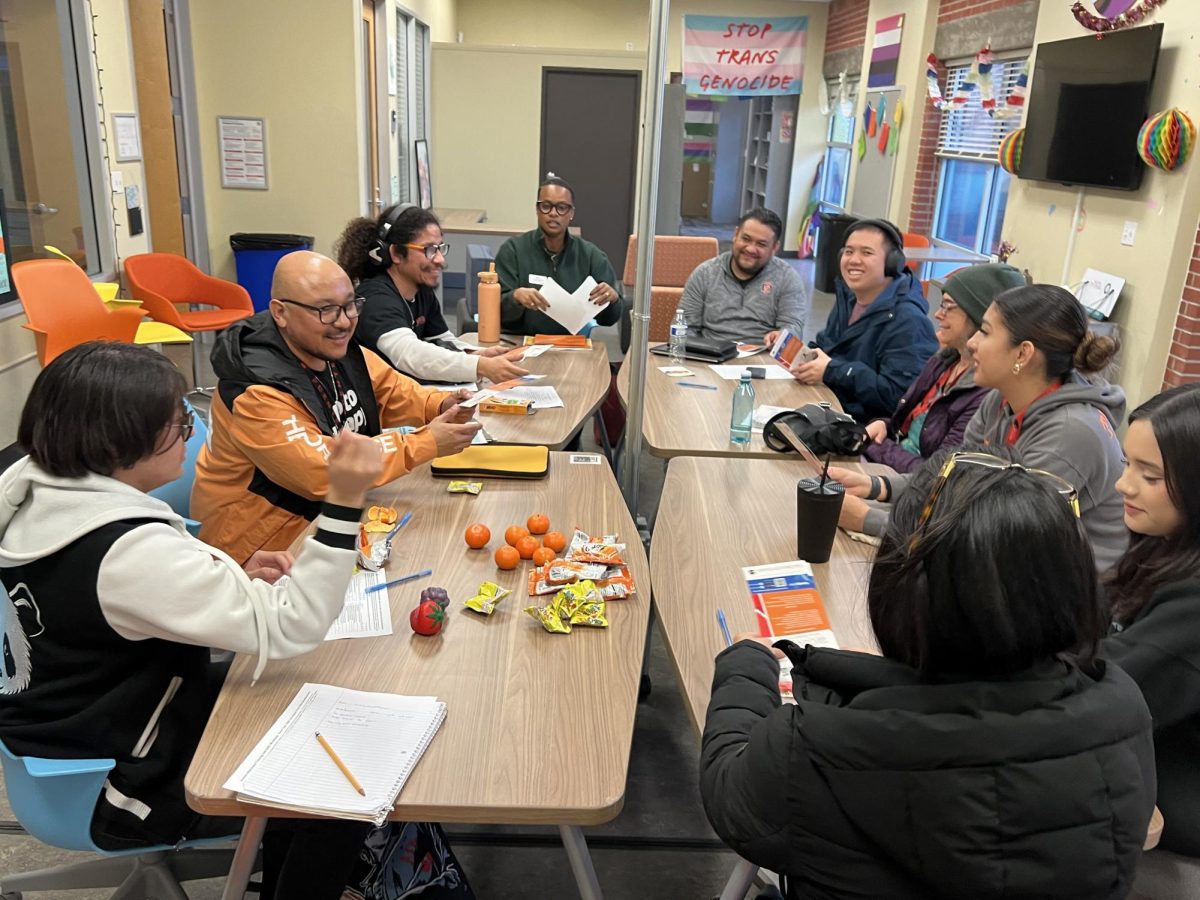A few dozen students and some faculty members laid “dead” in Gorton Quad on March 2, part of a statewide protest of Gov. Jerry Brown’s proposal to cut millions from higher education.
After the die-in event, a group of students marched to the downtown offices of Brown on 1350 Front St., hoping to deliver $300 worth of Top Ramen soups while chanting “No more budget cuts!” and “What do we want? Education!”
The proposed cuts will slash $500 million from the University of California system, $500 million from the California State University schools and $400 million from community colleges for the next school year.
Brown also has proposed increasing fees at community colleges from $26 to $36 per unit.
“We’re trying to give everyone a physical representation of what’s happening to our education,” student Angela Dance said.
“If we don’t do something, it’s going to get worse,” Dance added. “It’s going to keep happening. A big ball of hell.”
Jose Rodriguez, a member of the campus group Bringing Education and Activism Together (BEAT), said that Brown has failed students across the state and that increasing the cost of education prevents people from finding high-quality jobs.
“We as students helped vote Brown into office, and now he is turning his back on us,” Rodriguez said. “Without access to education, we will not have an educated body. We are going to have a bunch of uneducated people with stupid jobs.”
The crowd included students from City College as well as from other community colleges and even included students not affected by the proposed increase.
“Personally it doesn’t affect me, but it will impact my future,” said Cuyamaca College student and BEAT member Cody McCormack. “It affects all of California.”
City College student Patrick Namwenbe also expressed his frustration.
“There’s no future without community colleges,” Namwenbe said. “There’s no future without us.”
Rodriguez said organizers collected $300 worth of Top Ramen because that is the average a student will have to pay more for classes if the cuts to education are approved.
The original plan was to deliver the noodles to the governor’s representatives, but due to budget cuts, they were recently vacated from offices in San Diego as well as Los Angeles.
“How ridiculous is that?” Rodriguez asked. “California has the eighth largest economy in the world and we cannot afford to have representatives in two of the largest cities in the state.”
Larissa Dorman, BEAT’s faculty adviser, said a lot of students hope to transfer but are worried that cuts to classes and services could make it impossible.
Dorman added that a lot of students across the state voted for Brown and hopes that the governor comes to understand how the cuts will affect the poorest of students.
“This is a real tragedy,” Dorman said. “Students are going to have to keep fighting. This is their battle. We professors don’t want to see the cuts because it makes it harder for us to do our jobs, especially because we don’t have guaranteed positions.”
California State University Chancellor Charles Reed recently said at a Sacramento press conference that the CSU system would not be able to afford most of its degree programs.
The press conference also included community colleges Chancellor Jack Scott. He said schools may be forced to turn away more than 350,000 students on top of the 140,000 people turned away this year. The majority of those students couldn’t find class slots or ended up on waiting lists.
Despite the budget crisis, University of California President Mark Yudof said raising tuition would be “unpalatable,” a message repeated by Reed.








